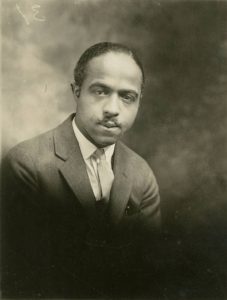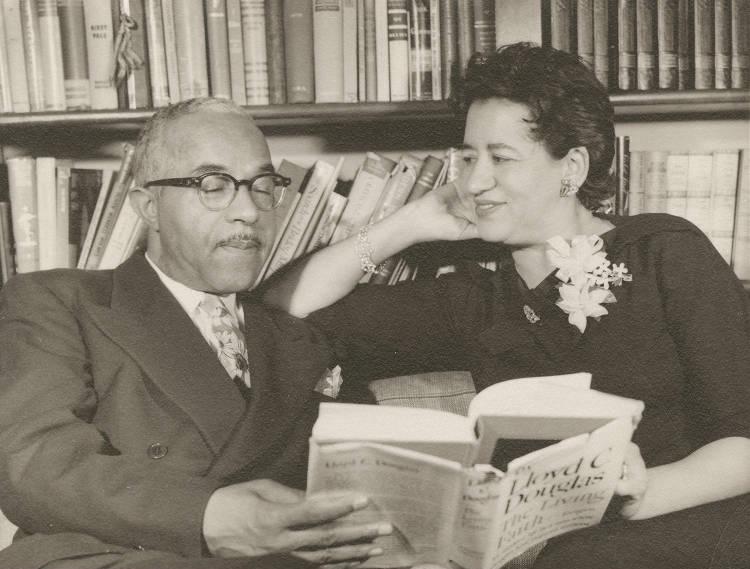
Photo info ...
Credit: Indiana Historical Society View Source
(June 21, 1902-Dec. 5, 1983). Born in Huntsville, Alabama, Richardson came to Indianapolis in his teens to study at , where he graduated in 1921. He then attended the University of Illinois for two years. In 1925 Richardson was admitted to the Indiana Law School in Indianapolis, where he received an LL.B. degree in 1928.

After law school, Richardson became active in local and state politics. In 1930 he was appointed a temporary judge in the Marion County Superior Court, becoming the first African American to serve in such a post. Two years later he was elected to the Indiana House of Representatives, making him among the first African Americans to be elected to the state legislature in the 20th century.
Throughout his long and active career, Richardson was a tireless supporter of civil rights. During his tenure as a state legislator from 1933 to 1935, he coauthored welfare legislation, authored the first fair employment practices law in the country, fought to end segregation in Indiana University’s dormitories, and assisted in efforts to change the state constitution’s ban on African Americans in the Indiana National Guard.
From 1932 to 1938, he was also director of the Civil Liberties Division of the National Bar Association. In 1938 Richardson helped found the Federation of Associated Clubs, which spearheaded the fight to end racial segregation in local theaters. Nine years later, he chaired a committee that wrote the 1947 Indiana Anti-Hate Law.
In 1948, Richardson obtained an injunction to keep the Dixiecrat Party off the ballot in Indiana. He also played a pivotal role in ensuring passage of the 1949 Indiana school desegregation law. In 1953 Richardson, as (NAACP) legal representative, worked closely with Thurgood Marshall and Constance Baker Motley to win a landmark integrated housing discrimination case, .
Richardson remained active in civil rights throughout the 1950s and 1960s. He served on the board of the Indianapolis , the Indiana Board of Public Welfare, the Indiana State Real Estate Commission, and the federal Civil Rights Commission. In 1958 he became the first Indiana life member of the NAACP. In 1965 he not only organized and founded the Indianapolis branch of the but also served on that organization’s national board from 1966 to 1970. For many years, Richardson was also active in the United Negro College Fund, serving both as local chairman and a member of the national board.
Richardson’s work on behalf of civil rights garnered him many citations and awards. Among these were three appointments as a Sagamore of the Wabash and an honorary Doctor of Laws degree from the University of Indianapolis.

Help improve this entry
Contribute information, offer corrections, suggest images.
You can also recommend new entries related to this topic.